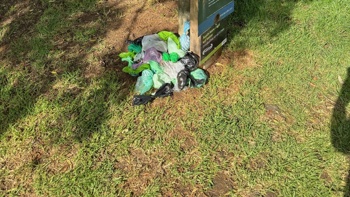
It's one of the most popular condiments in the pantry.
But if you're a fan of tomato sauce — whether it be on a pie, with your hot chips or perhaps on a sausage sizzle — you may want to reconsider.
When it comes to tomato sauce and other condiments, often the nutritional value is ignored because so little is used on our food.
But turns out a humble squirt of tomato sauce may be doing more damage to your waistline than you might think, with a single tablespoon containing higher sugar content than a biscuit or a chocolate.
"Tomato sauce contains a lot of sugar and salt and next to no nutritional value," nutritionist Kristen Beck told news.com.au.
"A single serve of tomato sauce is around 15ml (roughly three teaspoons of tomato sauce) and generally equates to 1 teaspoon of sugar (glucose and fructose)."
To add to the sweetness of the tomatoes, a lot of sauce brands requires fructose corn syrup, which is not only bad for the gut, but also can lead to increased insulin levels and weight gain.
High-fructose corn syrup, also called corn sugar, is an additive in many beverages such as soda, tomato sauce and canned tomatoes.
High-fructose corn syrup is a cheaper alternative to traditional sugar and adds a mildly sweet taste to foods without significantly changing their flavour.
"In addition to the natural sugars coming from tomatoes, manufacturers also add around 20% cane sugar to tomato sauce, but the exact amount added is impossible to decipher because Australian labelling laws don't require the exact amount of sugar added to be listed on the label," Ms Beck said.
Despite being low in calories, with around 15 calories per tablespoon, a serving of tomato sauce will usually contain 160mg of sodium of the recommended 920mg per day. Many also come with various kinds of salts, vinegar and onion powder to make it even tastier.
"When you look at the ingredients list for tomato sauce, on first glance it looks pretty good," Beck said.
"The first ingredient is tomatoes or tomato puree (approximately 75%) which may sound healthy, but you need to remember that fresh tomatoes are almost 95% water weight.
When pureed, the natural sugar content in tomatoes becomes much more concentrated — and even if sugars contained naturally in tomatoes may sound healthier than sugar, the World Health Organisation classifies sugars from fruit and vegetable concentrates as the same as all other added sugars.
"Concentrated fructose, such as that contained in tomato sauce and fruit juice extracts has been shown to be associated with the body's inflammatory response and fat accumulation around your midsection (but fructose in whole, fresh fruit is still very healthy for you)."
According to the Food Network, in 2004, a study released from the Harvard School of Public Health revealed that women who had higher levels of lycopene in their blood had a 50 per cent lower risk of developing heart disease.
Two ingredients of concern in tomato sauce are salt and sugar. Although 4 grams of sugar doesn't seem like a lot, much of it comes from added sugar, as opposed to the natural sugar found in tomatoes.
The same goes for the added salt: consuming eight tablespoons of sauce will have you reaching your sodium needs for the entire day, so if you like to pour on the red stuff, it's easy to overload on sodium.
While you may want to think twice before drowning your hot chips in a tomato bath, Ms Beck said there is an alternative that has better health benefits.
"On a positive note for tomato sauce, tomato puree is a rich source of the antioxidant lycopene and the amount of lycopene in tomato sauce is approximately 10 times greater than in fresh tomatoes," she explained.
"Lycopene is associated with reduced cardiovascular disease and prostate cancer risk. "
Take your Radio, Podcasts and Music with you









